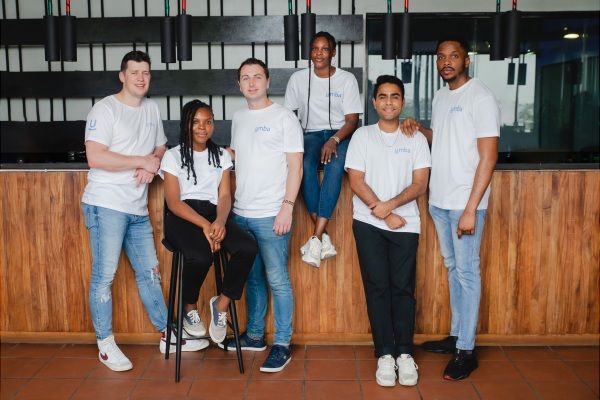Nigerian Digital Bank, Umba secures $15m Series A to Expand into new markets in Africa

Umba, a Lagos-headquartered digital banking platform announced that it has secured $15 million in VC firm Costanoa Ventures-led series A round to expand into new markets in Africa.
Alongside a couple of Nubank executives, investors like Tom Blomfield, the co-founder of Monzo, previous backers, Lachy Groom and ACT Ventures, and new investors such as Lux Capital, Palm Drive Capital, Banana Capital, and Streamlined Ventures participated in the funding round. This round takes the total seed raised by Umba to $17.5 million, having raised a seed round of $2 million in late 2020.
Commenting on the round the CEO and co-founder, Tiernan Kennedy said, “The Nubank guys saw what we’re doing and recognized it is the right model for emerging markets. Credit is the hardest problem to solve and underwriting customers at scale in multiple markets is challenging. It took us 18 months to build that. But now it’s up and running and performing.”
The funding will facilitate the startup’s seamless operation even as it prepares to launch in new markets, including Egypt, Ghana, and Kenya, where mobile money is prominent.
The fintech startup provides a diverse range of transparent and accessible financial products to consumers in Africa who are grossly underserved by legacy banks — only 43% of the region’s population has an account with a financial institution. Its other features include free bank accounts, interbank transfers, peer-to-peer transfers, and bill payments. These are standard features digital banks in Africa provide, whether they’re deposit-first like Kuda, credit-first such as FairMoney or Carbon, or both like Fintech Farm.
The startup claimed to have doubled its revenue every three months since its launch 18 months ago and has over a million downloads on the Google Play Store. It earns revenue by charging users a monthly interest rate of 10%.
Before founding Umba, Kennedy worked as the CTO of PearUp, a dating website, and as the head of engineering at Canary, an IoT startup, while Barry O’Mahony, the CFO, was previously the chief of operations at Tola Mobile, a UK fintech with operations in some African countries.
Umba follows Nubank’s credit-led approach, in which it first solves clients’ liquidity, needs before upselling them on a wide variety of banking products, according to the CEO. As a result, Umba customers may get loans as well as a no-fee current account, free payments, and bill payments. According to Kennedy, the organization provides credit solutions based on personal information provided by customers.
“I will like to think that we are the cheapest in the market. The reason is we’re collecting data, making automated underwriting and retraining models every month based on customer performance to deliver credit in seconds. Also, we’re best in class in terms of lending, which allows us to offer the lowest interest rates in the markets,” he said.
The firm’s concentration on engineering and customer experience, according to Kennedy, has contributed considerably to its success. He also indicated that they will be crucial in Umba’s efforts to service a variety of markets, currencies, and payment infrastructures.
“Some startups, like conventional banks, may purchase off-the-shelf banking systems and adapt them for their customers.” However, they are not prioritizing the client. “In both banking and mobile money sectors, we created fundamental banking systems from the bottom up and can give a tailored experience for the consumer at the drop of a hat,” stated the CEO.
“We can take all of that open financial data and underwrite it at scale with these many fragmented payment and data kinds.” In reality, this means we’re multi-currency, multi-country, and capable of handling a wide range of payment forms. And all of this takes time. Then there’s the capacity to move quickly against opponents.”
The founders stressed that they had secured numerous key hires for Umba’s new phase of regional growth, including the former Interswitch Chief Financial Officer and top Zynga employees.
Umba will also add debit cards, savings accounts, and stock trading to its product offering over the following 18 months.
“Right now, we’ve solved for credits and spending; what’s next is savings and investments, creating new markets opening up, that means hiring up staff in our three new markets,” Kennedy added.
